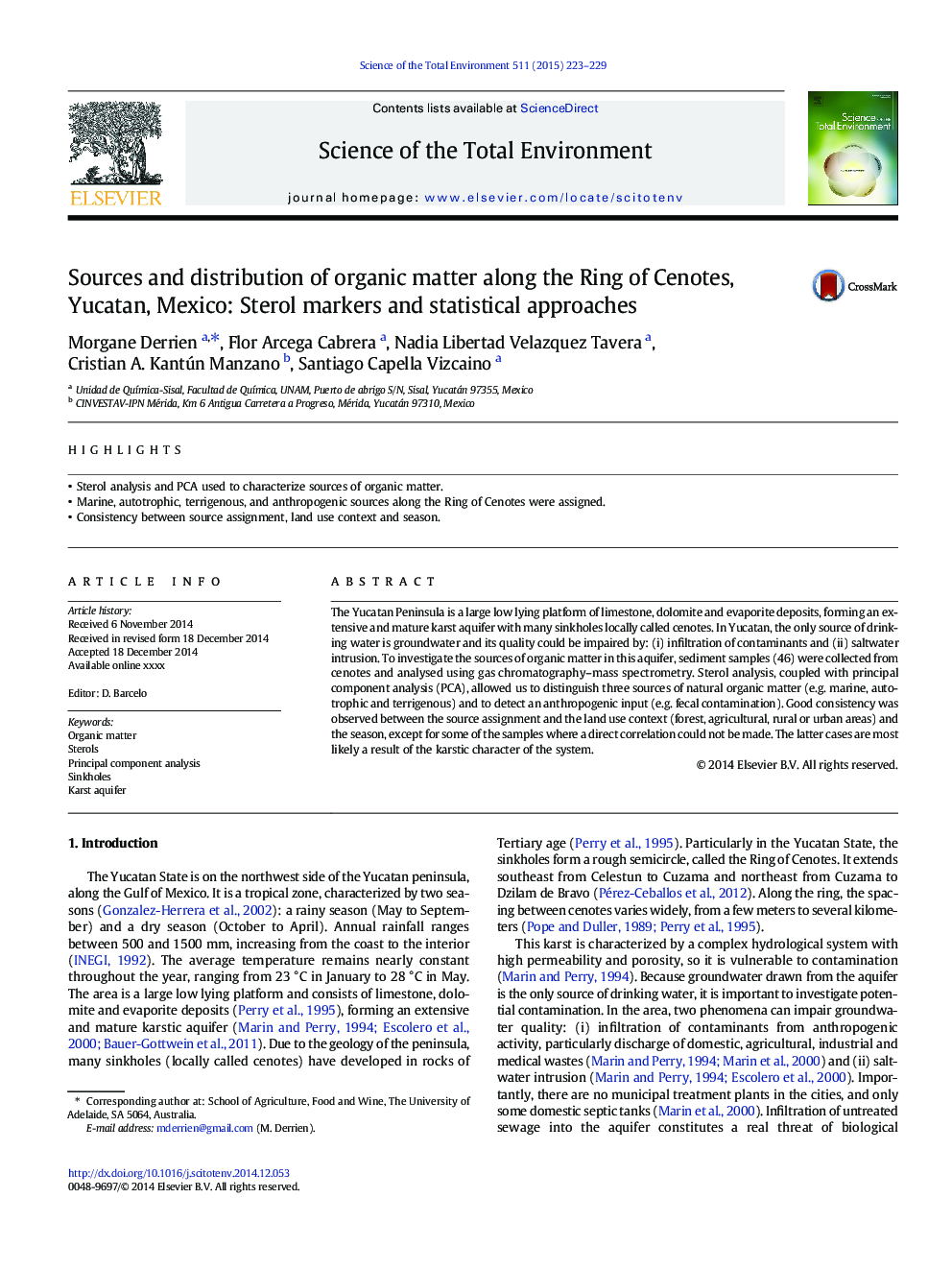| Article ID | Journal | Published Year | Pages | File Type |
|---|---|---|---|---|
| 6327443 | Science of The Total Environment | 2015 | 7 Pages |
Abstract
The Yucatan Peninsula is a large low lying platform of limestone, dolomite and evaporite deposits, forming an extensive and mature karst aquifer with many sinkholes locally called cenotes. In Yucatan, the only source of drinking water is groundwater and its quality could be impaired by: (i) infiltration of contaminants and (ii) saltwater intrusion. To investigate the sources of organic matter in this aquifer, sediment samples (46) were collected from cenotes and analysed using gas chromatography-mass spectrometry. Sterol analysis, coupled with principal component analysis (PCA), allowed us to distinguish three sources of natural organic matter (e.g. marine, autotrophic and terrigenous) and to detect an anthropogenic input (e.g. fecal contamination). Good consistency was observed between the source assignment and the land use context (forest, agricultural, rural or urban areas) and the season, except for some of the samples where a direct correlation could not be made. The latter cases are most likely a result of the karstic character of the system.
Related Topics
Life Sciences
Environmental Science
Environmental Chemistry
Authors
Morgane Derrien, Flor Arcega Cabrera, Nadia Libertad Velazquez Tavera, Cristian A. Kantún Manzano, Santiago Capella Vizcaino,
